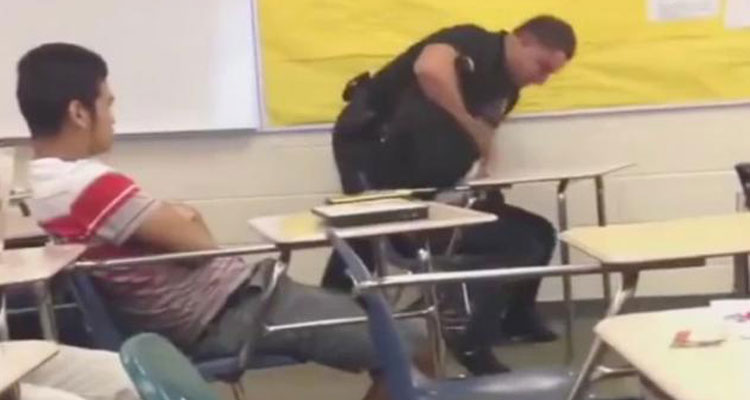A South Carolina deputy was fired Wednesday for using excessive force in attempting to remove a disruptive student from math class. The story, which made news nationally, in part because of racial overtones, begs larger questions about school discipline, the presence of police in schools, and appropriate response.
In the end, parents have to wonder what it takes to create a disruption-free learning zone.
“An effective school must first be a place where students can feel safe, physically and emotionally,” wrote Dr. Larry Lezotte in his 2010 book What Effective Schools Do. “It must be a supportive community where kids—and teachers—of all backgrounds can focus on learning. To create a climate of safety, halls and classrooms must be free of behavior like fighting, bullying, and harassment. That said, a safe environment is not created merely through punishment.”
But in 2015, can public schools operate without a police presence to preserve not only safety but a positive learning environment? There are two sides to the school police issue.
A poll of Denver Teachers Association members found that 30 percent did not feel safe in their own schools and that 80 percent said they lose planning time because of disciplinary problems in the classroom.
Allen Zollman, a former Philadelphia middle school teacher said that bullies control classrooms and are disruptive, in part because they face a lack of consequences. Testifying before the U.S. Commission on Civil Rights, Zollman said students dare teachers to kick them out of class. According to Zollman, one student said, “I’m going to torture you. I’m doing this because I can’t be removed (from class).”
In 2013-2014, 43 percent of U.S. schools and 64 percent of U.S. high schools had a police presence in the form of “school resource officers,” according to the National Center for Education Statistics. Those 46,000 full-time and 36,000 part-time officers build relationships and promote community awareness through safe driving and drug and alcohol awareness projects, coaching sports or supervising lunchrooms.
Debate.org posed the question: Should there be police officers in schools? Sixty-seven percent of respondents said, “Yes.” In a separate poll, the same website asked: Should school officers be armed? Seventy-eight percent of those responding said, “Yes.”
But it seems that police involvement has become all too common. Many wonder why schools can’t police their own hallways and classrooms. And, when police are called, when is force beyond justification? Others wonder if police are receiving proper training to react appropriately?
The Incident in South Carolina
“I can’t imagine any justification for treating a child like that in a classroom,” Victoria Middleton, head of South Carolina’s American Civil Liberties Union (ACLU) chapter, told CNN. “Whatever led up to it, whatever rationale may be presented, does not justify the force with which that student was treated.”
Richland County Sheriff Leon Lott, who fired deputy Ben Fields in the South Carolina incident, implied there are no easy answers. While calling Fields’ behavior “unacceptable,” he added that schools “need to understand that when they call us, we’re going to take a law enforcement action. Maybe that (incident) ought to have been something handled by the school without ever calling the deputy.”
Lott added: “The student was not allowing the teacher to teach and not allowing the students to learn. She was very disrespectful and she started this whole incident. It didn’t justify (the deputy’s) actions. But she also needs to be held responsible for what she did.”
The website Teach-nology.com points out that, “While the idea of assigned police officers is appealing to some, it is not a huge stretch of the imagination to see such situations get out of control.” Weapon searches and frisking could become the norm.
Maintaining school discipline is an issue that’s not going away. It will continue to be addressed by educators, law enforcement, and parents. What are your thoughts? Do you believe there should be a police presence in schools and how much is too much when it comes to creating a learning environment that’s safe and constructive for all students?




































